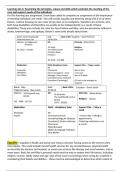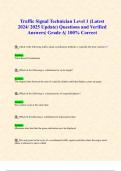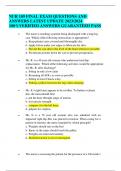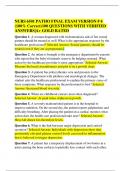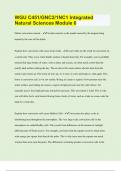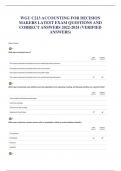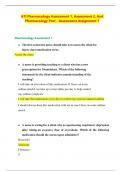Essay
Health and social care Unit 5 Learning aim A - meeting individual care and support needs, principle, values, and skills
- Course
- Institution
This document is my assignment for health and social care BTEC year 1 for Unit 5 Learning aim A. I achieved a distinction in this. Here, I have Written answers for all Parts separately, going from P1 to M1 then P2 to M2 and then D1. This is a long document but has everything in it to achieve a dist...
[Show more]
